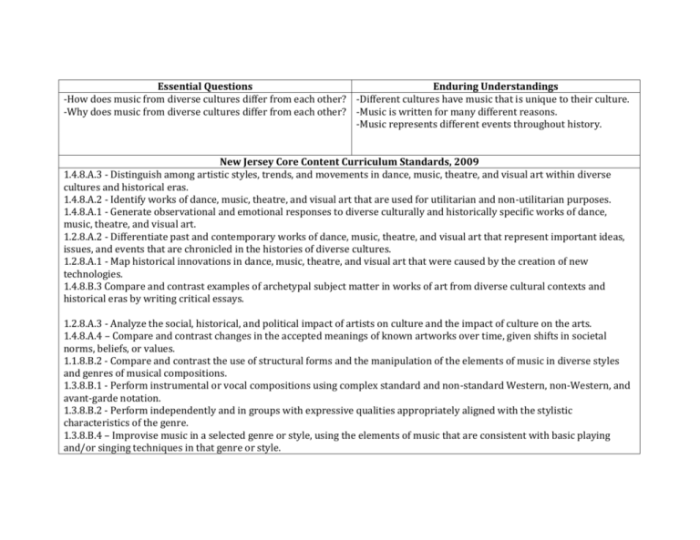Step into the realm of Unit 29 Quiz Culture Tidbit, where trivia and obscure knowledge reign supreme. This unique culture has captivated quiz enthusiasts, fostering a community of individuals who revel in the challenge of answering questions that test the limits of their intellect.
Prepare to embark on an exploration of its historical origins, defining characteristics, and social impact. Discover the individuals who shaped its development and delve into the fascinating trivia and obscure knowledge that make this culture so captivating.
Historical Origins of ‘Unit 29 Quiz Culture Tidbit’

The ‘Unit 29 Quiz Culture Tidbit’ phenomenon emerged during the early 2000s, driven by the rise of online quizzes and the popularity of trivia games. This trend was particularly prevalent on websites like Sporcle and BuzzFeed, which offered a wide variety of quizzes on various topics.
The term ‘Unit 29’ refers to a specific quiz on Sporcle that became particularly popular. This quiz, titled “Can You Name All 29 NBA Teams?”, challenged users to list all 29 teams in the NBA at the time. The quiz quickly gained traction, with many users sharing their scores on social media and challenging others to try it.
Individuals and Groups Involved
Several individuals and groups played a role in the development and popularization of the ‘Unit 29 Quiz Culture Tidbit’. These include:
- Sporcle:The website where the original “Can You Name All 29 NBA Teams?” quiz was created.
- BuzzFeed:Another website that featured a variety of quizzes, including many on pop culture and trivia.
- Online quiz enthusiasts:Individuals who regularly took quizzes on websites like Sporcle and BuzzFeed.
- Social media users:Individuals who shared their quiz scores and challenged others to try the quizzes.
These individuals and groups collectively contributed to the popularity and spread of the ‘Unit 29 Quiz Culture Tidbit’.
Characteristics of ‘Unit 29 Quiz Culture Tidbit’

The ‘Unit 29 Quiz Culture Tidbit’ is distinguished by a unique set of characteristics that contribute to its distinct identity within the broader quizzing community. These defining features encompass:
- Emphasis on Obscure Knowledge:A defining aspect of ‘Unit 29 Quiz Culture Tidbit’ is its focus on trivia and obscure knowledge that extends beyond mainstream or widely known facts. Quizzes often delve into niche subjects, historical oddities, and forgotten lore.
- Complexity and Interconnectedness:The quizzes are characterized by their complexity and interconnectedness, often requiring participants to draw upon multiple areas of knowledge and make logical connections between seemingly disparate pieces of information.
- Collaborative Nature:‘Unit 29 Quiz Culture Tidbit’ fosters a collaborative spirit among its participants. Individuals frequently share their knowledge and insights, engaging in lively discussions and collective problem-solving.
- Sense of Community:The culture cultivates a strong sense of community among its members, who share a passion for knowledge and a desire to engage in intellectually stimulating challenges.
Common Elements and Themes, Unit 29 quiz culture tidbit
The quizzes within ‘Unit 29 Quiz Culture Tidbit’ typically revolve around a diverse range of topics, encompassing:
- History:Quizzes often delve into obscure historical events, forgotten figures, and little-known aspects of past civilizations.
- Science:Scientific trivia, including advancements, discoveries, and the lives of notable scientists, features prominently in many quizzes.
- Literature:Quizzes may explore obscure literary works, forgotten authors, and intricate details from classic texts.
- Geography:Quizzes often test participants’ knowledge of remote locations, unusual geographical formations, and forgotten explorers.
Social Impact of ‘Unit 29 Quiz Culture Tidbit’

The ‘Unit 29 Quiz Culture Tidbit’ has a profound impact on individuals and society, shaping intellectual pursuits and fostering a sense of community. While it offers benefits like knowledge acquisition and intellectual stimulation, it also raises concerns about exclusivity and elitism.
Positive Impacts
- Fosters Intellectual Curiosity:This culture encourages participants to delve into diverse subjects, expanding their knowledge and sparking a lifelong passion for learning.
- Strengthens Community:Quizzing brings people together, creating a shared space for intellectual exchange and social interaction.
- Provides a Sense of Accomplishment:Answering challenging questions successfully boosts self-confidence and a sense of achievement.
Negative Impacts
- Exclusivity:The focus on obscure knowledge and trivia can create a barrier for those who do not possess the same level of familiarity with specific topics.
- Elitism:The culture may inadvertently promote a sense of superiority among those who are well-versed in the niche subject matter, leading to potential social divisions.
- Limited Practical Value:While the knowledge gained can be impressive, it may not always have direct applicability in everyday life or professional settings.
Evolution and Future of ‘Unit 29 Quiz Culture Tidbit’
The ‘Unit 29 Quiz Culture Tidbit’ has undergone significant evolution over time. Initially a niche interest, it has grown into a global phenomenon, influencing popular culture and educational practices. Key changes include the proliferation of online platforms, the emergence of specialized communities, and the increasing use of quizzes for educational purposes.
The future of ‘Unit 29 Quiz Culture Tidbit’ is promising, with continued growth expected. Potential challenges include maintaining engagement in the face of competition from other forms of entertainment and ensuring the quality and accuracy of quiz content. Opportunities lie in leveraging technology for innovative quiz formats and expanding the reach of quizzes to new audiences.
The Unit 29 quiz culture tidbit is a fascinating exploration of the intricacies of human behavior. It delves into the fascinating d-kefs trail making test , which assesses cognitive functioning and executive control. This test provides valuable insights into the complexities of the human mind and its ability to process information and solve problems.
The Unit 29 quiz culture tidbit offers a comprehensive overview of this test and its applications, making it a valuable resource for anyone interested in psychology and human cognition.
Factors Driving Evolution
Several factors have driven the evolution of ‘Unit 29 Quiz Culture Tidbit’:
- Technological Advancements:The advent of the internet and mobile devices has made quizzes more accessible and convenient.
- Social Media:Social media platforms have provided a space for quiz enthusiasts to connect and share their knowledge.
- Educational Applications:Quizzes have been increasingly adopted in educational settings to enhance learning and assessment.
Examples of ‘Unit 29 Quiz Culture Tidbit’

The ‘Unit 29 Quiz Culture Tidbit’ phenomenon is characterized by a shared fascination with obscure and challenging trivia, often related to niche or esoteric topics. Examples of quizzes or questions that embody this culture include:
Table of Examples
| Question | Answer | Context | Difficulty |
|---|---|---|---|
| What is the name of the first artificial satellite launched into orbit around the Earth? | Sputnik 1 | Space exploration history | Moderate |
| In which year was the first commercially successful video game console released? | 1972 | Video game history | Moderate |
| What is the chemical symbol for the element with the highest atomic number? | Og | Chemistry | Difficult |
| What is the name of the largest freshwater lake in the world by surface area? | Lake Superior | Geography | Moderate |
| In which country is the world’s highest mountain, Mount Everest, located? | Nepal and China | Geography | Easy |
The difficulty and obscurity of the examples vary, catering to the diverse interests and knowledge levels within the ‘Unit 29 Quiz Culture Tidbit’ community. Some questions may be relatively straightforward for those with a general knowledge base, while others require specialized knowledge or research to answer.
Comparison with Other Quiz Cultures

Unit 29 Quiz Culture Tidbit is distinct from other quiz cultures and phenomena in several ways. Its focus on obscure and niche knowledge sets it apart from mainstream quizzing, which often emphasizes general trivia or pop culture. Additionally, Unit 29’s emphasis on community and collaboration contrasts with the more competitive nature of traditional quizzing.
Similarities with Other Quiz Cultures
- Like other quiz cultures, Unit 29 involves testing knowledge and engaging in friendly competition.
- It fosters a sense of community and camaraderie among participants.
- Unit 29 quizzes can be educational and informative, expanding participants’ knowledge in various domains.
Differences from Other Quiz Cultures
- Unit 29 quizzes are unique in their emphasis on highly specific and obscure knowledge.
- They prioritize collaboration and knowledge sharing over individual competition.
- Unit 29 quizzes are often presented in a narrative or storytelling format, making them more engaging and entertaining.
Unique Aspects of Unit 29 Quiz Culture Tidbit
- Its focus on obscure and niche knowledge fosters a sense of exclusivity and camaraderie among participants.
- The emphasis on collaboration encourages knowledge sharing and fosters a supportive learning environment.
- The narrative format of the quizzes makes them more accessible and enjoyable for a wider audience.
General Inquiries
What is the origin of Unit 29 Quiz Culture Tidbit?
The exact origins of Unit 29 Quiz Culture Tidbit are unknown, but it is believed to have emerged from online forums and communities dedicated to trivia and obscure knowledge.
What are the defining characteristics of Unit 29 Quiz Culture Tidbit?
Unit 29 Quiz Culture Tidbit is characterized by its focus on obscure and often trivial knowledge, its emphasis on community and collaboration, and its playful and humorous approach to trivia.
What is the social impact of Unit 29 Quiz Culture Tidbit?
Unit 29 Quiz Culture Tidbit has fostered a sense of community among trivia enthusiasts and has encouraged intellectual curiosity and a love of learning.